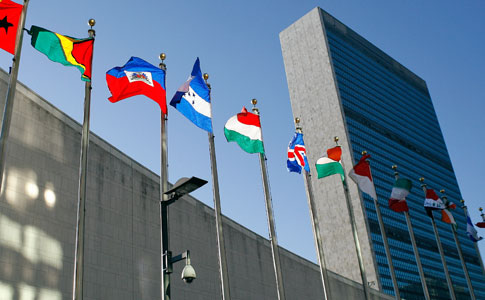The White House recently announced that it was attaching legislation on IMF quota reform to a bill to provide emergency bilateral assistance to Ukraine. The White House is effectively climbing back into the boxing ring with Congress on IMF reform – as the previous attempt to get IMF reform approved was a casualty of the January budget talks. The case for IMF reform is substantial and has been made in great detail elsewhere. As before, the White House faces considerable resistance in the House. To win the debate on IMF reform this time, the White House needs to do three things:
Keep the debate focused on leadership. The debate in the House was sidetracked over a procedural matter regarding moving the US account from an ad-hoc account to a permanent one. As a result, the IMF reform package looked less like needed reforms to update a vital international organization and more like thoughtless pork barrel spending. The US was roundly criticized at the recent G20 Finance Ministers meeting for not doing enough to conclude reforms that it lobbied other countries to adopt. The White House needs to make clear that the issue is not procedural matters over the US contribution, but rather about sustaining US leadership of the global economy. It’s not clear what the House wants here, and negation cannot be the foundation of foreign policy.
Remind Congress how the crisis underscores the value of the IMF. That the White House is linking IMF reform to support for emergency foreign aid is not surprising. The Republicans tried to do the exact same thing to wring further concessions out of the White House last month. The Fund operates as a global ‘fire department’ helping out countries in economic crisis. In this case, the Fund’s involvement is a clear force multiplier for US interests. Helping Ukraine is an easy rebuke to Putin’s adventurism, and stabilizing the economy and supporting a fragile government can help make a political settlement possible.
The critics of this proposal need to answer a simple question: if the Fund did not exist, what would happen? The answer is simple: more bilateral foreign aid. The IMF exists to help cost-share among major powers, and if it did not exist, the US would be left to pay the check alone.
Remind Congress that the IMF is a good insurance policy. The Fund dispatched a mission to Kiev knowing two things: that the country’s political situation is fluid, and that it’s past history with Ukraine has not been positive. The new Yatsenyuk government has said all of the right things to signal a commitment to economic reform, but promises do not always lead to successful implementation. The two prior IMF loans to Ukraine broke down prior to their intended completion date as the governments did not keep their pledges to implement austerity measures.
In this light, having the Fund take the lead is a commitment device to secure policy reform. The IMF has a measure of independence from other great powers, and this means that it can more credibly threaten to suspend foreign aid than the US government might. In six months’ time, if the Yatsenyuk government backs off its pledges, and the approach of elections in the Fall suggests this might well be the case, the Fund will be more likely to suspend a loan than the US government would.
In sum, linking the IMF reforms to the Ukraine foreign aid legislation may well be a political masterstroke for the White House. Congress is not going to pass this blindly, but managing the message differently may well permit the Obama administration to turn defeat into victory.
